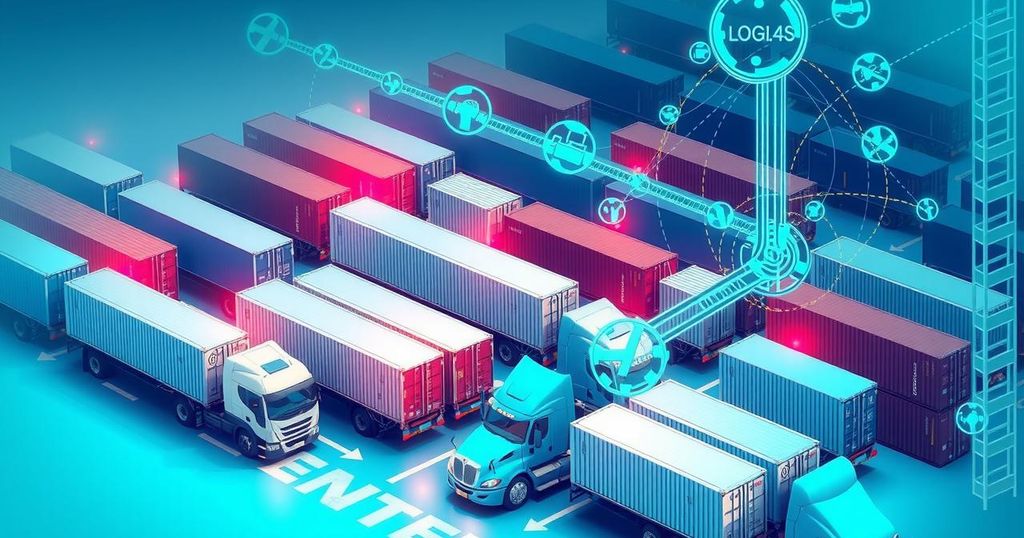Leta Secures Funding to Transform Logistics in Africa Using AI
Leta, a Nairobi-based logistics software provider, has raised $5 million to innovate logistics in Africa by utilizing AI technology. The platform aims to reduce transport costs, currently much higher than global averages, by optimizing routes, automating processes, and improving real-time tracking. Key investors include Google and Speedinvest.
Fast Summary
Leta, a Nairobi-based logistics software provider, has secured $5 million in seed funding from investors including Google’s Africa Investment Fund and European VC firm Speedinvest. The company aims to revolutionize logistics in Africa, where transportation costs are significantly higher than global averages, by employing AI for delivery optimization and real-time tracking, reducing costs and improving efficiency for local businesses.
Article Body
Leta addresses the high logistics costs faced by African businesses, which often pay four times the global average to transport goods. The African Development Bank reports that logistics constitute 75% of product costs on the continent. With many relying on outdated manual processes, delays are common. Leta’s AI-driven platform tackles these challenges by optimizing delivery routes, tracking shipments, and streamlining payments.
Recently, Leta raised $5 million in seed funding aimed at scaling its operations. The round was led by Speedinvest with participation from Google’s Africa Investment Fund and Equator, a climate tech fund focusing on Africa. Previously, in November 2022, Leta obtained $3 million in pre-seed funding to enhance operations across Kenya, Nigeria, Uganda, Zambia, and Zimbabwe.
The startup’s load and route optimization technology significantly reduces transportation costs and enhances efficiency by minimizing the number of vehicles required for delivery. Founder and CEO Nick Joshi emphasized the platform’s capability to aggregate live order data from businesses’ ERP and POS systems, thereby selecting optimal vehicles for deliveries.
With its capabilities to automate manifest creation and dispatch planning, Leta’s system employs AI to optimize routes based on current demand and truck capacity. Joshi illustrated this with an example of a truck route impeded by traffic or construction, which the AI system flags for avoidance.
Additionally, Leta’s mapping accuracy represents a substantial advantage. Unlike Google Maps, which has not updated various Nairobi regions since 2022, Leta’s platform continually enhances its map based on real-world deliveries, making it an appealing investment for Google. Joshi indicated that this development has led to a more detailed road and address layout.
Joshi also articulated the potential for extensions into financial services as an integration into their software, claiming this could include offerings like fuel cards and asset financing. Speedinvest’s Deepali Nangia recognized Leta’s unique approach, stating it leverages logistics while utilizing fintech as a growth mechanism.
By minimizing fleet sizes, Leta helps reduce both fuel costs and carbon emissions, an incentive for Equator’s investment. Joshi stated that a client with 70 trucks could save around $30,000 monthly by using their service. Tracking carbon emissions is an intended objective for the future.
Leta has grown significantly, now powering more than 35 prominent businesses, including KFC and Diageo, and managing over 10,000 trips daily. Since 2022, their scale of operations has expanded from 500,000 deliveries to 4.5 million, with revenue increasing fivefold.
In the coming months, Leta intends to increase revenue even further as it seeks expansion into additional countries in Africa and the Middle East. Unlike earlier logistics companies in Africa that adopted asset-heavy models, Leta operates solely as a software solution, allowing it to partner with existing logistics companies to improve efficiency without owning vehicles.
Joshi noted, “The first generation of logistics startups in Africa did the hard work by educating the market and proving what’s possible.” Upon entering the sector, Leta identified existing gaps and opportunities, setting its strategy accordingly.
In conclusion, Leta is poised to transform logistics in Africa through innovative AI-driven solutions that significantly reduce costs and enhance operational efficiency. With substantial funding and strategic partnerships, the company is well-positioned to scale its impact across the continent and contribute to more sustainable logistics practices. The focus on software solutions rather than asset ownership offers a flexible and efficient model that could reshape the landscape of logistics in Africa.
Original Source: techcrunch.com




Post Comment